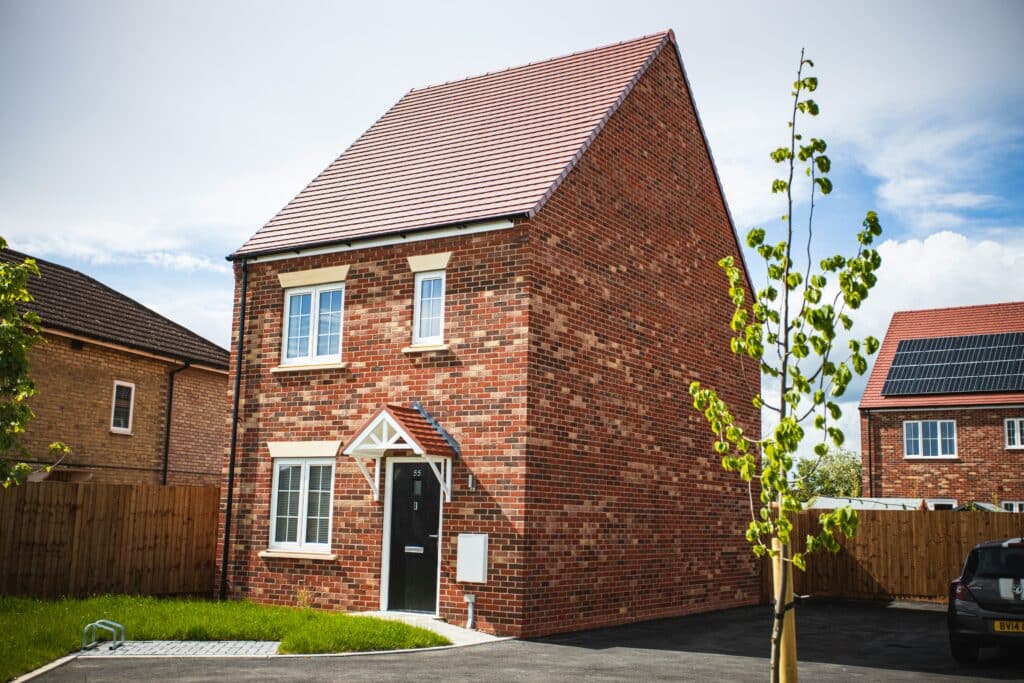Registered vs Unregistered Land: An Explanation
Author: Andrew Burrows | Published: December 4, 2020
What is Registered Land? Properties kept on record by the Land Registry.
What is Unregistered Land? A property with no details recorded at the Land Registry.
Many people are unaware that there remains a substantial proportion of unregistered land in England and Wales. Currently, 14% of land in England and Wales remains unregistered.
Compulsory first registration has been in place since 1925 and was gradually rolled out across England and Wales until it applied to all areas from 1990. Compulsory first registration means that when a ‘trigger’ event happens, the property must be registered with the Land Registry. These triggers include a transfer of the property (i.e. the property being purchased or sold), a new mortgage being registered, the property being inherited or the property being gifted.
In this blog post, we’ve outlined the differences between registered and unregistered land, including the benefits of owning a registered property. You’ll also find tips and advice if you’re involved in the transfer of an unregistered property or if you wish to register your property.
Registered Land – Summary:
The Land Registry keeps a register of all registered land. Each property is given a unique number that is used to identify the property. The Land Registry will also keep an individual register for the property which includes information about the property, information about the ownership and information regarding any mortgages or charges over the property. This is collectively referred to as the title information.
As the register for the property is updated any time an event happens that affects the property, it becomes a useful tool for conveyancers as all of the information is at their fingertips. The Land Registry charge a small fee for access to each property’s register.
Unregistered Land – Summary:
Unlike registered land, there are no details recorded centrally to show the information surrounding an unregistered property. A search will be performed via the Land Registry by your conveyancer to identify whether the land in question is registered or unregistered. If the property is unregistered, no information will be held about the property, including who the owner of the land is.
When it comes to unregistered land, the owner must demonstrate their ownership of the property through what is called a ‘root of title’. This will provide information about the property going back at least 15 years (to be a good root of title) and hopefully showing the transfer of the property into the current owner’s name. It is very important to keep the deeds of unregistered property safe as these will be vital in showing a good root of title and providing your conveyancer with important information regarding the property.

Benefits of owning a registered property:
- Matters affecting the property and your ownership are well recorded and clear. The Land Registry provide you with a guarantee for your title and there are less likely to be issues arising in the future.
- If you are looking to sell the property, the property may be more likely to appeal to buyers’ if it is registered. The conveyancing process will also be much quicker and more straightforward in this respect.
- If any deeds become lost, destroyed or stolen, your ownership of the property is protected. Anyone can access the Land Registry and see your recorded ownership.
- The Land Registry require your identity to be verified before registering the property in your name. This provides greater protection against property fraud.
- The Land Registry will also have a title plan on their records which will show the boundaries of the property. If any boundary disputes were to arise, this is something that can easily be referred to.
What if I am involved in the transfer of an unregistered property?
If you are selling a property that is unregistered, you will need to inform your conveyancer that this is the case as early on as possible. You will be asked to provide the deeds to the property (for reasons described above) and the transaction could take longer than if the property were registered. You may also be asked more questions in order to both prove your ownership of the property and to confirm that things present in the deeds are correct.
If you are purchasing an unregistered property then, it is worth noting that the conveyancing process can take much longer to complete, but you are unlikely to experience any issues other than a longer process. As the transfer to you will be a trigger for first registration, the property will also automatically be registered with the Land Registry upon completion. However, this process is likely to take much longer than if the property was registered and is more costly.
How can I register my property?
If you currently own an unregistered property, you do not have to wait for a ‘trigger’ event to happen in order for your property to be registered with the Land Registry. As mentioned above there are many benefits to having the property registered as soon as possible.
If you do choose to register your property, this is known as voluntary first registration. The Land Registry fees for voluntarily registering your property are 25% lower than if you waited for a compulsory registration trigger.
If you would like to find out any more information regarding registration of property or would like the assistance of one of our experienced conveyancers then please contact our Client Service Advisors.


